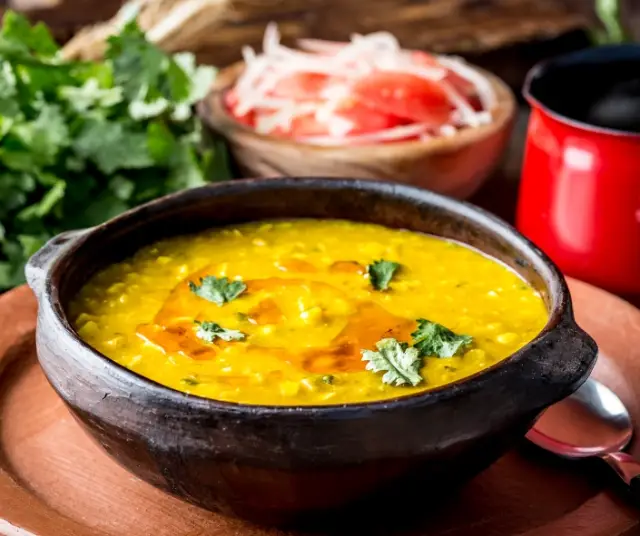Chilean gastronomy is a living manifestation of the rich history and cultural diversity that defines the country. With indigenous, European and African influences, Chilean cuisine is a melting pot of flavors, ingredients and culinary techniques that reflect Chile's unique geography and cultural heritage. Chilean Cuisine Day is an annual celebration that honors this culinary wealth and its impact on national identity.
History of Chilean Cuisine
Chilean cuisine has its roots in the culinary traditions of the indigenous peoples who inhabited the region long before the arrival of Spanish colonizers in the 16th century. These people, like the Mapuches in the south and the Diaguitas in the north, had a diet based on native products such as corn, potatoes, chili and fish.
The arrival of the Spanish introduced new ingredients and culinary techniques that fused with indigenous traditions, giving rise to a unique mestizo cuisine. The Spanish influence is reflected in dishes such as pastel de choclo, cazuela and arroz con pollo, while the indigenous heritage is evident in the use of ingredients such as merkén (ground dried chili), quinoa and cochayuyo.
During colonial times, Chile became an important center of trade in South America, bringing with it culinary influences from around the world. The arrival of European immigrants, especially Italians, Germans and French, further enriched Chilean cuisine with dishes such as empanada, complete (Chilean version of the hot dog) and sopaipilla.
In the 19th century, the gold rush in California and the construction of the railroad in Chile attracted thousands of Chinese immigrants, who introduced ingredients and techniques from Asian cuisine, such as the use of ginger, soy and the wok. This influence is seen in dishes such as Chilean chapsui, a local version of chop suey.
Emblematic Dishes of Chilean Cuisine
Chilean cuisine has a wide variety of dishes that reflect the geographical and cultural diversity of the country. Some of the most iconic dishes include:
Empanadas: These delicious empanadas filled with meat, chicken, pino (a mixture of ground meat, onion, hard-boiled egg, olives and raisins) or cheese are a classic of Chilean gastronomy. They are consumed throughout the country and are especially popular during national holidays.
Cazuela: This comforting stew is an emblematic dish of Chilean cuisine. It is prepared with beef, chicken or pork, along with vegetables such as squash, potatoes, corn and carrots. It is served hot and is perfect for cold winter days.
Pastel de Choclo: A true Chilean delicacy, pastel de choclo is a dish that combines ground tender corn with meat, onion, hard-boiled egg, olives and raisins. It is baked until the top is golden brown and crispy, creating a perfect combination of flavors and textures.
Complete: This Chilean version of the hot dog is a fast food classic in Chile. It is served on a soft and spongy bread with a Vienna sausage, accompanied by chopped tomato, avocado, mayonnaise and chili sauce.
Sopaipillas: These delicious fried pumpkin dough cakes are a favorite snack in Chile. They are served hot, sprinkled with powdered sugar or accompanied by pebre, a Chilean sauce made with tomato, onion, cilantro and chili.
Pisco Sour: This iconic Chilean cocktail is a mixture of pisco (grape brandy), lemon juice, gum syrup, egg white and a few drops of Angostura bitters. It is refreshing and perfect to enjoy on any occasion.
These are just a few examples of the many delicious dishes that are part of Chilean cuisine. Each region of the country has its own specialties and variations, demonstrating the diversity and culinary richness of Chile.
Cultural Importance of Chilean Cuisine Day
Chilean Cuisine Day, celebrated on April 15, is an occasion to recognize and celebrate the country's gastronomic diversity. It is an opportunity to pay tribute to the producers, chefs and cooks who keep Chilean culinary traditions alive and promote local gastronomy both inside and outside Chile.
In addition to being a celebration of food, Chilean Cuisine Day is also an occasion to reflect on the cultural importance of gastronomy in national identity. Food is not only a physical necessity, but also an expression of the history, geography and traditions of a people. Through food, values, beliefs and memories are transmitted that help strengthen the sense of belonging and community.
In an increasingly globalized world, Chilean Cuisine Day is an opportunity to preserve and promote local culinary traditions in a context of cultural exchange. By celebrating the gastronomic diversity of Chile, respect for the culture and identity of each region of the country is encouraged, thus contributing to the preservation of Chile's cultural wealth for future generations.
It is an opportunity to savor the country's iconic dishes, honor those who prepare them, and reflect on the fundamental role food plays in national culture and identity. So the next time you enjoy a pastel de choclo or a complete, remember that you are tasting a part of Chile's rich history and diversity. Happy Chilean Cuisine Day!
